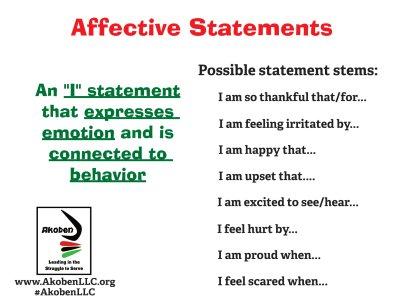The Role of Consultation and Coaching in Strengthening Restorative Practices Across Organizations

Modern organizations, schools, and community systems are finally waking up to the reality that technical skills alone don’t build strong teams. What truly transforms environments is the ability to connect, communicate, and repair harm when it occurs. This is where consultation and Coaching steps in, offering structured guidance that aligns perfectly with the values of restorative practices.
Understanding the Purpose of Consultation and Coaching
Professionals trained through the Coaches Training Institute and leadership models from institutes like akobenllc institute are helping shape a new era of collaborative, relational development. Meanwhile, certifications like Trauma Informed Care Certification deepen practitioners’ understanding of human behavior and stress responses, making the application of restorative values even more effective.
Every organization carries its own history, challenges, communication patterns, and levels of trust. That means no two environments need the same strategy. Consultation and Coaching helps leaders, educators, and teams identify their systems’ needs and uncover the habits that support growth or create barriers.In the early phases of coaching, practitioners introduce reflective tools, assessments, and guided dialogues that set the foundation for sustainable change. In many programs, visual tools like the Restorative Practices Poster help participants internalize restorative principles and apply them consistently.
How Consultation and Coaching Strengthen Restorative Work
Reframing Leadership Through a Restorative Lens
Anyone stepping into leadership today needs more than authority. Iman Shahbaz strengthens leadership by helping teams build empathy, accountability, and restorative communication skills through practical consultation and coaching. They need empathy, accountability, and the capacity to guide others through conflict. Consultation and coaching encourage leaders to examine their habits, build communication skills, and apply the relational principles found in Restorative Practices.
Engaging a seasoned keynote speaker during leadership retreats or organizational events can also reinforce these ideas. A speaker who understands restorative philosophy energizes teams and helps them see the bigger purpose behind cultural change efforts.
Embedding Accountability and Repair in Team Culture
Teams that undergo coaching begin practicing genuine accountability instead of blame. Members learn the difference between punitive reactions and restorative responses. Tools like the Restorative Practices Poster become daily reminders of how to address harm, rebuild trust, and support consistency across the organization.
When leaders have foundational knowledge from programs like Trauma Informed Care Certification, they’re better equipped to notice emotional triggers, trauma responses, and fatigue patterns. This awareness helps them respond to conflict with compassion while still upholding expectations.
Enhancing Communication and Emotional Intelligence
Healthy communication is the backbone of a resilient organization. Coaching sessions often focus on emotional literacy, active listening, and conflict de-escalation. Participants practice identifying needs, expressing concerns respectfully, and seeking mutual understanding.
These communication upgrades are especially powerful for educational leaders trained by institutes like akobenllc institute, where restorative language and collaborative problem-solving are emphasized. As communication becomes more predictable and respectful, organizational trust naturally increases.
Why Restorative Practices Thrive With Professional Guidance
Human-Centered Strategies Stick Longer
Restorative work is relational, meaning you can’t simply hand someone a list of rules and expect transformation. Coaching allows teams to practice restorative mindsets in real-time situations. Over weeks and months, these habits become part of the organizational culture.
Organizational Change Requires Consistency
Many schools and organizations try implementing new initiatives but fail due to inconsistencies. The structure within Consultation and Coaching helps teams stay on track, revisit goals, and adjust strategies where needed.Institutes like the Coaches Training Institute emphasize the importance of revisiting vision, purpose, and behavior patterns so progress doesn’t fade after the first few months.
Trauma-Informed Knowledge Supports Restorative Values
Restorative work cannot be separated from emotional wellness. That’s why professionals who pursue Trauma Informed Care Certification are better equipped to apply restorative strategies in humane and effective ways. They understand how stress, trauma, and dysregulation show up in behavior, and they respond in ways that build safety rather than fear.
Long-Term Impact of Combining Consultation, Coaching, and Restorative Practices
Organizations that commit to this integrated approach experience measurable improvements, including:
- Higher employee engagement
- Reduced conflict and disciplinary issues
- Increased trust among teams
- Stronger leadership alignment
- More effective communication
- Greater adaptability during change
- Healthier organizational climate
This transformation doesn’t happen overnight. It’s built slowly, through consistent coaching, restorative frameworks, and leadership grounded in empathy.
Conclusion
The path to stronger, healthier, and more resilient organizations requires more than surface-level change. It requires support, structure, and strategies that bring people together. Through Consultation and Coaching, teams develop the confidence and competence to apply Restorative Practices with intention.
When organizations combine visual tools like the Restorative Practices Poster, training through akobenllc institute, strategies from the Coaches Training Institute, and deeper insight from Trauma Informed Care Certification, they create environments where people feel valued, supported, and understood. Add the motivational spark of a transformative keynote speaker, and organizations gain not just skills but long-term cultural strength.
- Sports
- Art
- Causes
- Crafts
- Dance
- Drinks
- Film
- Fitness
- Food
- Игры
- Gardening
- Health
- Главная
- Literature
- Music
- Networking
- Другое
- Party
- Shopping
- Theater
- Wellness


